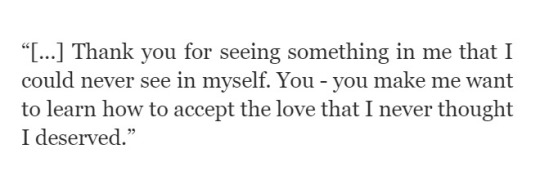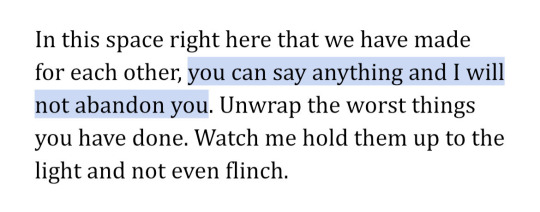#Will Haynes
Explore tagged Tumblr posts
Text

3 notes
·
View notes
Text
The far right grows through “disaster fantasies”

If you'd like an essay-formatted version of this post to read or share, here's a link to it on pluralistic.net, my surveillance-free, ad-free, tracker-free blog:
https://pluralistic.net/2024/11/25/mall-ninja-prophecy/#mano-a-mano">https://pluralistic.net/2024/11/25/mall-ninja-prophecy/#mano-a-mano

The core of the prepper fantasy: "What if the world ended in the precise way that made me the most important person?" The ultra-rich fantasize about emerging from luxury bunkers with an army of mercs and thumbdrives full of bitcoin to a world in ruins that they restructure using their "leadership skills."
The ethnographer Rich Miller spent his career embedding with preppers, eventually writing the canonical book of the fantasies that power their obsessions, Dancing at Armageddon: Survivalism and Chaos in Modern Times:
https://www.press.uchicago.edu/ucp/books/book/chicago/D/bo3637295.html
Miller recounts how the disasters that preppers prepare for are the disasters that will call upon their skills, like the water chemist who's devoted his life to preparing to help his community recover from a terrorist attack on its water supply; and who, when pressed, has no theory as to why any terrorist would stage such an attack:
https://pluralistic.net/2020/03/22/preppers-are-larpers/#preppers-unprepared
Prepping is what happens when you are consumed by the fantasy of a terrible omnicrisis that you can solve, personally. It's an individualistic fantasy, and that makes it inherently neoliberal. Neoliberalism's mind-zap is to convince us all that our only role in society is as an individual ("There is no such thing as society" – M. Thatcher). If we have a workplace problem, we must bargain with our bosses, and if we lose, our choices are to quit or eat shit. Under no circumstances should we solve labor disputes through a union, especially not one that wins strong legal protections for workers and then holds the government's feet to the fire.
Same with bad corporate conduct: getting ripped off? Caveat emptor! Vote with your wallet and take your business elsewhere. Elections are slow and politics are boring. But "vote with your wallet" turns retail therapy into a form of civics.
This individualistic approach to problem solving does useful work for powerful people, because it keeps the rest of us thoroughly powerless. Voting with your wallet is casting a ballot in a rigged election that's always won by the people with the thickest wallets, and statistically, that's never you. That's why the right is so obsessed with removing barriers to election spending: the wealthy can't win a one-person/one-vote election (to be in the 1% is to be outnumbered 99:1), but unlimited campaign spending lets the wealthy vote in real elections using their wallets, not just just ballots.
You can't recycle your way out of the climate emergency. Practically speaking, you can't even recycle. All those plastics you lovingly washed and sorted ended up in a landfill or floating in the ocean. Plastics recycling is a hoax perpetrated by the petrochemical industry, who knew all along that their products would never be recycled. These despoilers convinced us to view the systemic rot of corporate ecocide as an individual matter, chiding us about "littering" and exhorting us to sort our garbage:
https://pluralistic.net/2020/09/14/they-knew/#doing-it-again
We are bombarded by real problems that require urgent solutions that can only be resolved through collective action, which we are told is impossible. This is an objectively frightening state of affairs, and it makes people go nuts.
At the start of this century, in the weeks before 9/11, a message-board poster calling himself Gecko45 went Web 1.0 viral by earnestly bullshitting about his job as a mall security guard, doing battle with heavily armed gangs, human traffickers, and ravening monsters. Gecko45's posts were unhinged: he started out seeking advice for doubling up on body-armor to protect him while he deployed his smoke bombs and his partner assembled a high-powered rifle. Though Gecko45 was apparently sincere, he drew tongue-in-cheek replies from the other posters on GlockTalk, who soon dubbed him the "Mall Ninja":
https://lonelymachines.org/mall-ninjas/
The Mall Ninja professed to patrolling a suburban shopping mall while armed with 15 firearms as he carried out his duties as "Sergeant of a three-man Rapid Tactical Force at one of America’s largest indoor retail shopping areas." His qualifications? Mastery "of three martial arts including ninjitsu, which means I can wear the special boots to climb walls."
The Mall Ninja's fantasy of a single brave individual, defending the sleepy populace from violent, armed mobs is instantly recognizable as an ancestor to today's right wing fantasy of America's cities as "no-go zones" filled with "open air drug markets," patrolled by MS-13 and antifa super-soldiers. And while the Mall Ninja drew derision – even from the kinds of people who hang out on a message board called "GlockTalk" – today, his brand of fantasy wins elections.
On Jacobin, Olly Haynes interviews the political writer Richard Seymour about this phenomenon:
https://jacobin.com/2024/11/disaster-nationalism-fantasies-far-right/
Seymour's latest book is Disaster Nationalism:The Downfall of Liberal Civilization, an exploration of the strange obsessions of the right with imaginary disasters in the midst of real ones:
https://www.versobooks.com/en-gb/products/3147-disaster-nationalism
You know these imaginary disasters: "FEMA death camps, 'great replacement theory,' the 'Great Reset,' fifteen-minute cities, 5G towers being beacons of mind control, and microchips installed in people through vaccines." As Seymour writes, these conspiracy fantasies are proliferated by authoritarian regimes and their supporters, especially as real disasters rage around them.
For example, during the Oregon wildfires, people who were threatened by blazing forests that hit 800'C refused to evacuate because they'd been convinced that the fires were set by antifa arsonists in a bid to "wipe out white conservative Christians." They barricaded themselves in their fire-threatened homes, brandishing guns and prepping for the antifa mob.
Seymour says that this "disaster nationalism" "processes disaster in a way that is actually quite enlivening." Confronted with the helplessness of a real disaster that can only be solved through the collective action you've been told is both impossible and a Communist plot, you retreat to an individualistic disaster fantasy that you can play an outsized role in. Every crisis – the climate emergency, poverty, a toxic environment – is replaced by "bad people" and you can go get them.
For authoritarian politicians, a world of bad people at the gates who can only be stopped by "the good guys" makes for great politics. It impels proto-fascist movements to electoral victories, all over the world: in the US, of course, but Seymour also analyzes this as the phenomenon behind the electoral victories of authoritarian ethno-nationalists in India, Israel, Brazil, and all over the world.
I find Seymour's analysis bracing and clarifying. It explains the right's tendency to obsess over the imaginary at the expense of the real. Think of conservatives' obsession with imaginary and hypothetical children, from Qanon's child trafficking conspiracies to the forced birth movement's fixation on "the unborn."
It's not just that these kids don't exist – it's that the right is either indifferent or actively hostile to real children. Qanon peaked at the same time as Trump's "kids in cages" family separation policy, which saw thousands of kids separated from their parents, many forever, as a deliberate policy.
The forced birth movement spent decades fighting to overturn Roe in the name of saving "the unborn" – even as its leaders were also overturning the Child Tax Credit, the most successful child poverty alleviation measure in American history. Actual children were left to sink into food insecurity and precarity, to be enlisted to work overnight shifts in meat-packing plants, to fall into homelessness – even as the movement celebrated the "culture of life" that would rescue hypothetical children.
Lifting kids out of poverty and building a world where parents can afford to raise as many children as they care to have is a collective endeavor. Firebombing abortion clinics or storming into a pizza parlor with an assault rifle is an individual rescue fantasy that escapes into the world.
Mall Ninja politics are winning.
#pluralistic#disaster nationalism#preppers#conspiracy fantasy#conspiracy theories#conspiratorialism#masque of the red death#american carnage#Richard Seymour#jacobin#Olly Haynes
2K notes
·
View notes
Text

Natalie Haynes, from 'Stone Blind'
17K notes
·
View notes
Text





Carol, 2015 dir. Todd Haynes
1K notes
·
View notes
Text






Carol (2015) dir. Todd Haynes
#carol#carol 2015#film#filmedit#rooney mara#caroledit#filmgifs#moviegifs#dailyflicks#fyeahmovies#userlera#todd haynes
911 notes
·
View notes
Text













So, I’ve just read the new chapter of this fic that I love and I’ve been bawling my eyes out. The non-linear process of healing and learning how to accept love even if you don’t feel deserving of it hits so close to home.
7th poem is from @halfof-mysoul !
#web weaving#poetry#anne carson#Sade Andria Zabala#Trista Mateer#Natalie Haynes#on healing#on love#on forgiveness#on friendship
6K notes
·
View notes
Text


VELVET GOLDMINE (1998) dir. Todd Haynes
#velvet goldmine#filmedit#filmgifs#moviegifs#filmdaily#dailyflicks#userfilm#userstream#myedit#doyouevenfilm#cinemapix#fyeahmovies#cinematv#filmtvdaily#chewieblog#lgbtqia#musical#drama#fantasy#todd haynes#90s#film
2K notes
·
View notes
Text
assorted ghosts headcannons
-pete and flower have a nice friendship because they both enjoy nature and pete loves teaching flower about different birds and plants and things (he sees her almost as one of his scouts and she looks up to him kinda like an older brother)
-hetty was so excited when alberta ended up staying as a ghost because there was finally another woman around and because she enjoyed albertas singing
-trevor is secretly invested in bodices and barons but pretends he just watches it cause it’s the only thing on and he hates it sooooo much
-hetty calls flower susan sometimes like how she calls pete peter
-thor wants sam and jay to have a kid in hopes they can see him just like hetty did
-alberta and sasappis be gossiping to no end
-pete and trevor are actually pretty good friends and watch 80s movies together cuz they remind trevor of his childhood and pete just didn’t have time to watch them when he was alive
ok that’s it the end
#cbs ghosts#ghosts cbs#hetty x trevor#hetty woodstone#ghosts us#sasappis#pete martino#flower montero#susan flower montero#alberta haynes#trevor lefkowitz
1K notes
·
View notes
Text







CBS Ghosts + Tweets/Textposts
#ghosts cbs#cbs ghosts#ghosts us#ghosts#incorrect ghost quotes#incorrect quotes#hetty woodstone#trevor lefkowitz#pete martino#flower montero#thorfinn#sasappis#issac higgintoot#alberta haynes#sam arondekar#jay arondekar#my post#h$#tretty#elias woodstone#nigel chessum
1K notes
·
View notes
Text










CBS Ghosts + text posts
#does this make sense#they’re so ridiculous#I love them#ngl I should do other minor ghosts too#cbs ghosts#ghosts#ghosts cbs#sam arondekar#samantha arondekar#jay arondekar#thorfinn ghosts#sasappis#isaac higgintoot#hetty woodstone#alberta haynes#flower montero#pete martino#trevor lefkowitz
442 notes
·
View notes
Text



[Therese squeezes Carol’s hand ever so slightly. The Guy Lombardo band strikes up a bright New Year’s tune.]
Carol (2015), directed by Todd Haynes
#carol#carol 2015#caroledit#filmgifs#filmedit#filmtv#cate blanchett#rooney mara#todd haynes#*#happy new year!#🎉
412 notes
·
View notes
Text
pete when he died:

og pic 🔥🔥 (also @ghastlypals suggested this to me :3)

#cbs ghosts#ghosts cbs#us ghosts#ghosts us#pete martino#flower montero#alberta haynes#hetty woodstone#henrietta woodstone#isaac higgintoot#sasappis#thorfinn
518 notes
·
View notes
Text




all of a sudden, I was dragged into a series with ghosts and now I consider them my adopted children (who are hundreds of times older than me). 1 part
976 notes
·
View notes
Text

Thelonious Monk, Charlie Parker, Charles Mingus, Roy Haynes
431 notes
·
View notes






